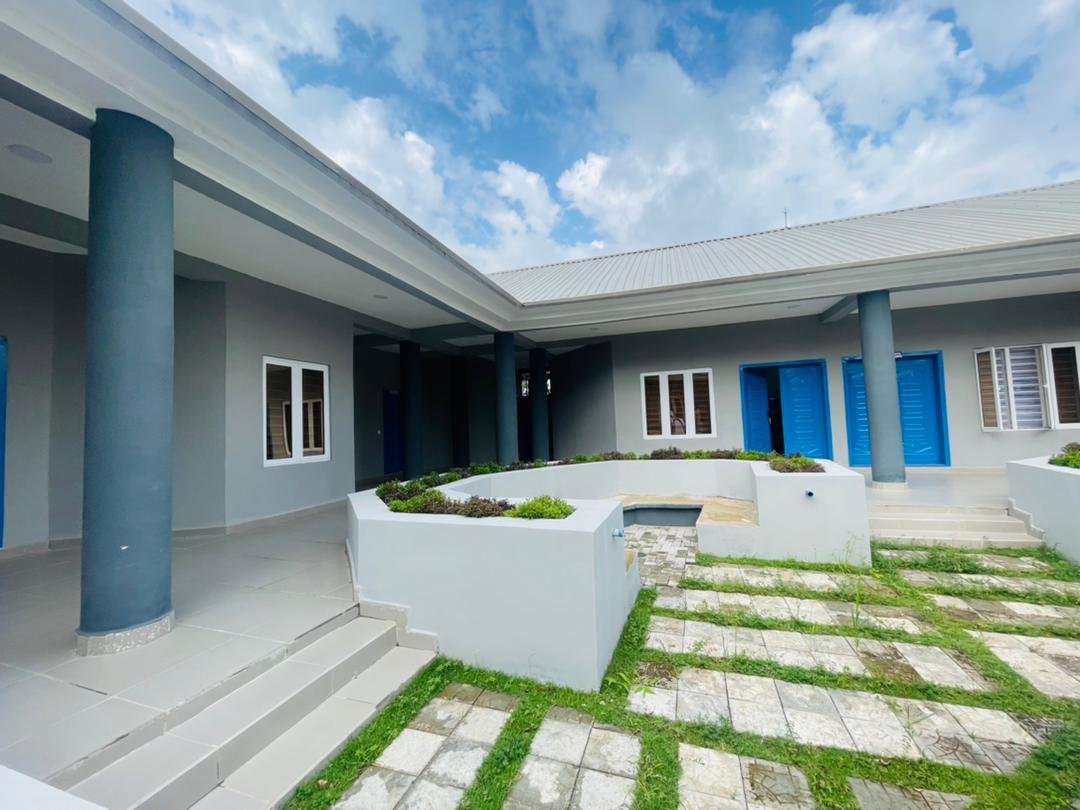AAIPSDS
Abdulsalami Abubakar Institute for Peace Sustainable Development Studies as an Institute is committed to producing graduates who are grounded in the theory and practice of conflict, peace building and sustainable development.
Our Programmes
Explore our diverse educational pathways at the Abdulsalami Abubakar Institute, designed to foster peace and sustainable development.
Academic Programmes
Discover our postgraduate diploma and degree paths in Disaster Risk Management and Humanitarian Emergencies.
Strategic Programmes
High-level courses focused on sustainable development, peacebuilding initiatives, and specialized leadership training.
Weekend Programmes
Flexible learning solutions tailored for working professionals, allowing you to advance your career without interruption.
Frequently asked questions
1. What is the Abdulsalami Abubakar Institute for Peace and Sustainable Development Studies?
The Abdulsalami Abubakar Institute is a leading organization dedicated to fostering peace, conflict resolution, and sustainable development through education, training, research, and policy advocacy. It is named after General Abdulsalami Abubakar, GCFR, a former Head of State of Nigeria. Abdulsalami Abubakar Institute for Peace and Sustainable Development Studies (AAIPSDS) is an independent, non-governmental. The establishment of the Institute is a response to the need for innovative, effective, and efficient afro-centric conflict transformation and development methodologies.
2. Who is the founder of the Institute?
The Institute was founded by General Abdulsalami Abubakar, GCFR, a respected statesman, peacemaker, and advocate for sustainable development. General Abubakar served as Nigeria’s Head of State from June 1998 to May 1999 and is credited with successfully transitioning the country to democratic rule. His unwavering commitment to peace and nation-building inspired the establishment of the Institute.
3. What are some of General Abdulsalami Abubakar’s contributions to peace and development?
General Abdulsalami Abubakar is globally recognized for:
- Steering Nigeria’s return to democratic governance in 1999.
- His mediation roles in African conflicts, working with international bodies such as the United Nations and the African Union.
- Promoting dialogue and reconciliation through various peace initiatives.
4. Where is the Institute located?
The Institute is based in Minna, Niger State, Nigeria.
5. What are the Core Areas of the Institute work?
- Conflict prevention and peacebuilding.
- Climate change and human security.
- Governance and democratic transitions.
- Education and Training.
- Strategic Policy Advocacy
6. What programs does the Institute offer?
We offer diverse programs, including:
- Executive Short-Term Courses.
- Postgraduate Diplomas in Disaster Risk Management, Humanitarian Emergency Management, and Climate Change Adaptation.
- Workshops, seminars, and roundtables on governance, security, and peacebuilding
7. How are the courses delivered?
- Courses are delivered through a combination of in-person lectures, interactive workshops, simulations, and online modules.
8. Are there any short-term courses available?
Yes, the Institute offers short-term courses and certificate programs in specialized areas like mediation, negotiation, and climate adaptation strategies such as:
- Basic Conflict Management
- Advanced Conflict Management
- Executive Course in Strategic Leadership and Conflict Management
- Basic Mediation
- Advanced Mediation
- Executive Course in Workplace Mediation
- Executive Course in Disaster Risk and Humanitarian Management
- Executive Course in Disaster Risk and Climate Change Adaptation
- Executive Course in Small Arms and Light Weapon Control
- Executive Course in Private Security and Public Safety Management
- Executive Course in Border Security Management
- Executive Course in Women, Peace & Security
9. What is the duration of the Postgraduate Diploma programs?
The Postgraduate Diploma programs typically run for 18 months, including a combination of classroom learning, fieldwork, and project writing. The courses are weekend based from Fridays and Saturdays.
10. What are the unique facilities at AAIPSDS?
- Conducive lecture and seminar rooms
- Learning resource Centre with internet connectivity
- A quiet and serene environment
- Availability of current state of multi- media strategies for presentation of lectures and seminars
- Friendly support staff
11. Why should I choose to stay at AAIPDSDS
- A unique mixed blend of the academia and professionals on the field as resource persons
- A focused program with a wide range of areas of specialization for students
- Short residencies which provide opportunities to combine personal needs, career and education.
- Provides opportunities to balance theory and practice through a well-organized internship program
- An Academic Advisory Board of reputable leaders in the filed
- The campus is located in a state with many tourists’ attractions
12. Are the programs accredited?
Yes, our postgraduate diploma programs are run in affiliation with the Federal University of Technology, Minna.
13. How can I apply for a program?
Application forms and guidelines can be accessed through our website or by contacting our admissions office.
14. What areas of research does the Institute focus on?
Our research focuses on:
- Conflict prevention and peacebuilding.
- Climate change and human security.
- Governance and democratic transitions.
- Sustainable development policies.
15. Does the Institute conduct research on behalf of other organizations?
Yes, we undertake commissioned research for government agencies, NGOs, and international organizations.
16. Are there specific programs for children, youth and women?
Yes, we have targeted programs such as:
- Youth, Peace and Security for Development to empower young leaders.
- Women, Peace and Security, which focus on promoting gender inclusion and empowering women in peace and conflict resolution.
- Children, Peace and Security to empower young children to develop the culture of peace through peace clubs and other initiatives
17. Can my organization partner with the Institute?
Absolutely! We encourage collaborations with organizations aligned with our goals. Contact us to discuss partnership opportunities.
18. How can I support the Institute’s work?
You can support us through donations, sponsorships, or volunteering. Visit our Support Us page for more information.
19. Does the Institute accept interns?
Yes, the Institute offers internship opportunities for students and young professionals interested in peacebuilding, research, and sustainable development.
20. Does the Institute offer opportunities for volunteering?
Yes, we welcome volunteers to support our peacebuilding and development projects. Visit the Get Involved section on our website for details.
